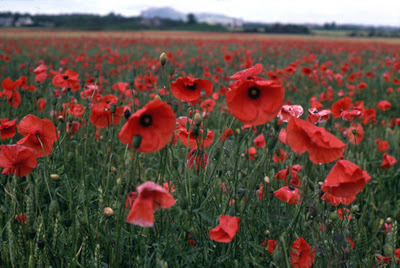100 years ago today, on the 11th hour of the 11th day of the 11th month, World War I ended.
 Here in Kenya, we paused for prayer and silence during our church service, and I got to play the "Last Post" on the keyboard to end the silence, the plaintive bugle call that signals the securing of camp for the night and memorializes the dead. Nine million soldiers and seven million civilians lost their lives due to fighting, plus the fifty million deaths from the influenza pandemic that was related to the hunger and chaos of a world at war. Kenyans were conscripted into the proxy war in Africa and died at alarming numbers, 1 in 5 of those who were forced into service, literally decimating the male population at the time. I think it is impossible for our human minds to grasp the suffering of those years, the loss, the brutality, the exhaustion.
Here in Kenya, we paused for prayer and silence during our church service, and I got to play the "Last Post" on the keyboard to end the silence, the plaintive bugle call that signals the securing of camp for the night and memorializes the dead. Nine million soldiers and seven million civilians lost their lives due to fighting, plus the fifty million deaths from the influenza pandemic that was related to the hunger and chaos of a world at war. Kenyans were conscripted into the proxy war in Africa and died at alarming numbers, 1 in 5 of those who were forced into service, literally decimating the male population at the time. I think it is impossible for our human minds to grasp the suffering of those years, the loss, the brutality, the exhaustion.

The war to end all wars did not. Humans still grab for power, still attempt to control and exploit, still risk food supplies and the health of children for personal advancement. Disease still incubates in the wake of displacement and violence. The Ebola epidemic in the Beni and Butembo areas of the DRC is now the largest epidemic in Congo's history (the country where the disease was first recognized) largely due to the juxtaposition of the illness upon the context of splintered rebel groups, scramble for mineral resources, mistrust of government and outsiders, fear and politics.
And yet, the 11th hour rescue still unfolds. One of the most famous poems of WWI was written after the trench warfare in Belgium churned up muddy soil where poppy seeds had long hibernated. The buried soldiers were soon covered in blood-red flowers, and a Canadian physician meditated upon the irony of life coming from death.


The war to end all wars did not. Humans still grab for power, still attempt to control and exploit, still risk food supplies and the health of children for personal advancement. Disease still incubates in the wake of displacement and violence. The Ebola epidemic in the Beni and Butembo areas of the DRC is now the largest epidemic in Congo's history (the country where the disease was first recognized) largely due to the juxtaposition of the illness upon the context of splintered rebel groups, scramble for mineral resources, mistrust of government and outsiders, fear and politics.
And yet, the 11th hour rescue still unfolds. One of the most famous poems of WWI was written after the trench warfare in Belgium churned up muddy soil where poppy seeds had long hibernated. The buried soldiers were soon covered in blood-red flowers, and a Canadian physician meditated upon the irony of life coming from death.
In John 12, Jesus foreshadows his death by talking about a seed of wheat that will die to bear much fruit. The soldiers of 100 years ago, in the poem, call out to us to hold onto the faith that resists evil and risks all to redeem this world.
I'm thankful today for those who fought, and particularly those who paid the highest price. I'm thankful for the spirit of catching that torch to keep fighting for this world, be it by working for healing, by standing for justice, by caring for trees and mountains and resources, by innovating technical solutions to majority-world issues (that's a shout-out to our four kids). We sometimes think this year has been tough, but if I try to imagine how people a century ago held onto hope in the face of a world at war and a third of the population of the entire globe succumbing to a flu that no one even understood at the time . . . I can appreciate that we have made good changes, we have kept faith. And we will soldier on.


No comments:
Post a Comment